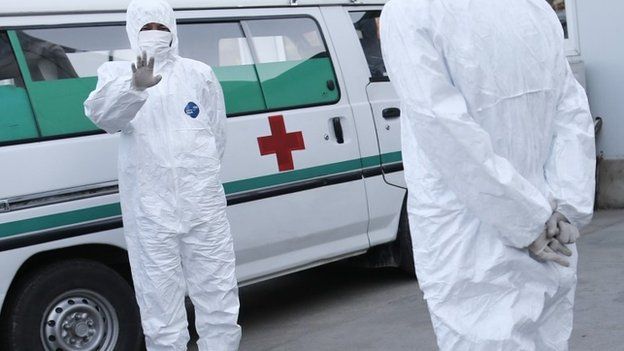North Korea bans foreigners from Pyongyang marathon over Ebola
- Published

North Korean authorities have banned foreigners from participating in the annual Pyongyang marathon because of concerns over the spread of the Ebola virus, travel agencies say.
In October, the country began enforcing strict travel restrictions on incoming tourists including a 21-day quarantine.
No Ebola cases have been reported in North Korea or anywhere near it.
The marathon, one of the year's most popular events for tourists, takes place on 12 April.
"We are sorry to announce that we have been informed by our partners in North Korea that no foreign runners - amateur or professional - will be allowed to participate in this year's Pyongyang Marathon," Koryo Tours, a Beijing-based travel agency said on its website according to South Korea's Yonhap new agency.
Foreigners are banned "due to the fear of the spread of Ebola", the company said on Twitter, local media reported. China-based Young Pioneer Tours also confirmed the ban.
The Ebola outbreak, which began in West Africa, has killed more than 9,000 people.
Travel ban
Last year's race, which also included a 10km (6 mile) race and a half-marathon, was the first time the event was open to foreigners and an estimated 200 people from around the world took part.
This year, Koryo Tours alone was expecting to take 500 people to the marathon, its director Nick Bonner told Reuters news agency.
North Korea looks at tourism, especially from China, as a way of increasing foreign funds flowing into the country.
But it halted all visas for non-essential travel in October as a measure against Ebola.
It is not clear why North Korean authorities are particularly concerned Ebola could be brought into the country.
But much of the population lives in extreme poverty and the healthcare system would be ill-equipped to handle an Ebola epidemic.
North Korean state media has suggested the disease was created by the US military as a biological weapon.
- Published30 December 2014
- Published14 January 2016
- Published3 November 2014